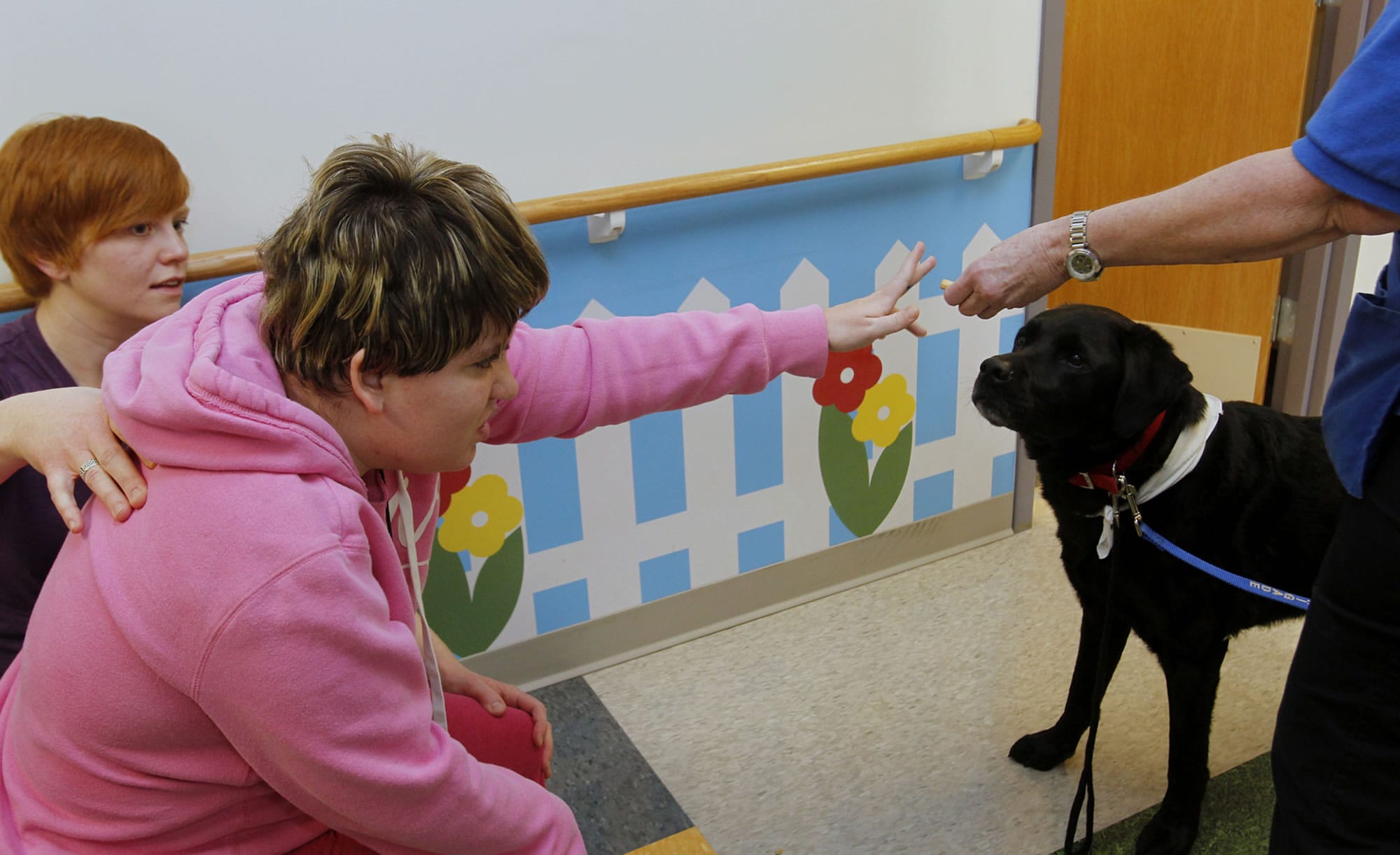AKRON, Ohio — The young woman bent over in her wheelchair, stretching her muscles to the limit as she tossed a treat to the big black dog.
While focusing on the scene at hand, one might miss the look of intense pain that crosses her face as she struggles to toss a biscuit reward to the Labrador retriever/rottweiler mix named Tank.
The scene plays out several times a day at Akron Children’s Hospital in Akron, Ohio, where therapy dogs such as Tank are an integral part of the rehabilitation process, said physical therapist Kate Patton of Tallmadge, Ohio.
“The dogs make our plan of care effective. We come in with a plan, and they make it happen,” Patton said of the dogs enrolled in the therapy program with the Children’s Hospital Doggie Brigade.
For Allison Hill, 26, dogs such as Tank will help her reach her goal — live as independently as possible — sooner with only one care provider.
“(The dogs) are motivating,” said Hill of Ravenna, Ohio, who attends the therapy sessions eight hours a day, five days a week.
“If it wasn’t for the dogs encouraging me, I wouldn’t want to do it,” she admitted.
Hill, who was born with cerebral palsy, started rehabilitation at the hospital following surgery to remove a pain pump from her body. During the process from changing to oral pain medication, she was enrolled in the hospital’s therapy program, doing exercises to deal with acute changes in her muscle function.
With each muscle she uses in her spine, legs and arms as she bends over to pet the dog, the pain can be excruciating. It registers on her face.
It’s enough to keep many patients at home if it weren’t for the fact they would miss working with the dogs, said Chris Witschey of Wadsworth, Ohio, who is credited with being one of the leaders of the program. Her three therapy dogs have some of the same special needs as the patients, which might make it easier for children and adults to relate.
Tank, who suffered knee problems until implanted metal plates helped him walk, has an innate sense of empathy that makes him a standout among the hospital’s 78 dogs in its Doggie Brigade program, Patton said.
“Tank is the most perceptive when the kids are in discomfort,” she said.
“He will actually get between the patient and the therapist when he thinks they’ve had enough,” Witschey agreed.
Handsome, a deaf Australian shepherd/rottweiler mix who understands commands in sign language, and Gracie, a rescued, three-legged husky mix, round out Witschey’s team.
“The dogs are one of the biggest motivators to keep them engaged. This is an all-day program, and (the patients) get burned out,” Witschey said.
Almost every patient in the hospital is aware of the visiting dogs, said Dr. Micah Baird, Hill’s physiatrist, who practices physical medicine and is a rehabilitation therapy specialist.
“I’ve worked in other hospitals where they have allowed dogs to come in but never one where they have had so many dogs working in the program and where they put the dogs through the training they do here,” Baird said.
Every handler and dog in the brigade team must meet strict requirements and be registered by Pet Partners, formerly the Delta Society, to be in the hospital. Animals must be evaluated by hospital volunteer trainers. Handlers must be screened, undergo a background check by the FBI and be fingerprinted.



